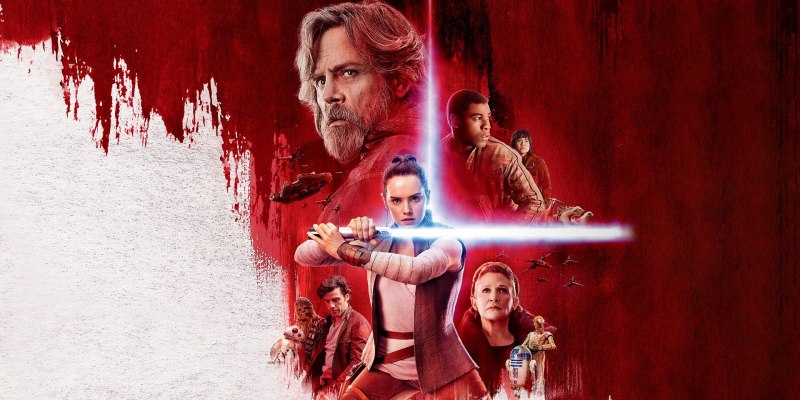Star Wars: The Last Jedi was released five years ago this week.
Regardless of how one feels about it, it is a movie that lingers in the consciousness. It’s hard to think of another recent blockbuster that has stayed in the conversation to the extent that it has. Of course, this is a double-edged sword. It can be hard to see The Last Jedi as anything but a culture war battlefield, which does the movie itself a disservice. It remains one of the most compelling and ambitious major franchise blockbusters of this young century.
There is a solid argument to be made that 2017 was the last truly great year for American blockbuster cinema. This isn’t nostalgia speaking. The year was dominated by much of the intellectual property-mining franchise extensions that have defined the past decade. However, that year’s blockbuster slate was full of big movies with big ideas, pop cinema that dared to provoke and even challenge its viewers with interesting ideas under the candy-coated franchise trappings.
The Last Jedi arrived at the end of a year that included hits like Blade Runner 2049, Get Out, Dunkirk, War for the Planet of the Apes, Thor: Ragnarok, Guardians of the Galaxy Vol. 2, Wonder Woman, IT, Logan, Kong: Skull Island, Baby Driver, and John Wick: Chapter 2. Even some of the year’s “misses,” like Atomic Blonde, were ambitious populist spectacles. There have been great blockbusters released since, but never in such a high concentration. The Last Jedi feels like the culmination of this trend.
One of the big criticisms of The Last Jedi from a certain traditionalist subset of the Star Wars fandom is that the movie is not faithful enough to the idea and the romance of Star Wars. This is the root of the “subverting expectations” criticism of the movie, which argues that The Last Jedi is so busy doing things that nobody expects a Star Wars movie to do that it is unable to be an actual Star Wars movie. This is a fascinating argument, in large part because it is so superficial.
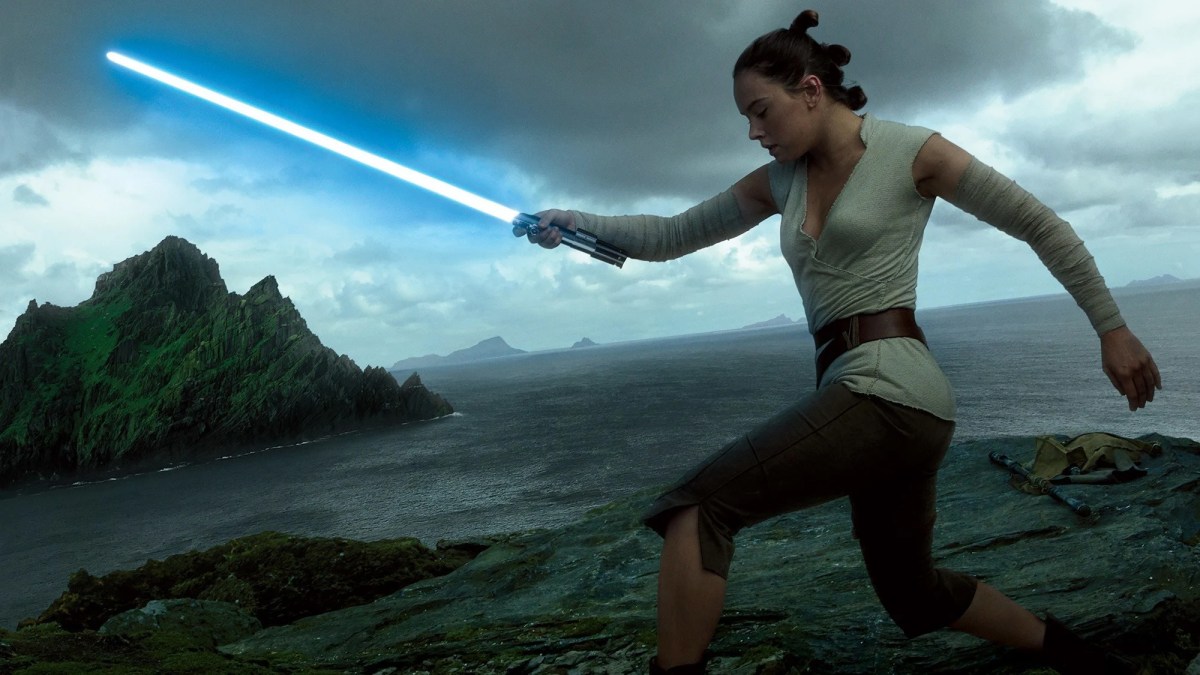
There is a reading among critics of The Last Jedi that the film is about burning down the past, demolishing what came before. This argument is rooted in Kylo Ren’s (Adam Driver) instruction to “let the past die; kill it if you have to.” What is missed in this criticism of the movie is that Kylo Ren is the villain of The Last Jedi. Indeed, Ren is more explicitly villainous in The Last Jedi than he is in either The Force Awakens or The Rise of Skywalker. It seems strange to believe the movie agrees with him.
To certain Star Wars fans, the portrayal of Luke Skywalker (Mark Hamill) is proof of this desire to topple old icons. After all, Luke was the hero of the original Star Wars films, and The Last Jedi finds Luke living a modest existence on a remote planet, having given up the fight just when the galaxy needs him most. To critics of the movie, this is an incredibly cynical portrayal of their childhood hero, the man who stood up to the Empire and fought for the Rebellion.
Of course, this criticism somewhat misses a couple of crucial points about Star Wars history. Most notably, Luke doesn’t actually do much to help the Rebellion in Return of the Jedi, risking a high-value mission in the hopes of reconciling with his father, Darth Vader (David Prowse, James Earl Jones). It also overlooks the fact that the original Star Wars trilogy featured older heroes like Obi-Wan Kenobi (Alec Guinness) or Yoda (Frank Oz) living similarly isolated and hermitic lives.
This portrayal might appear outwardly cynical, but it is just in keeping with the franchise’s larger themes. After all, George Lucas had similar plans for Luke in his own planned sequels, comparing him to Kurtz (Marlon Brando) in Apocalypse Now. Indeed, writer and director Rian Johnson inherited a lot of the starting premise of The Last Jedi from the end of The Force Awakens. What really matters is what Johnson chose to do with that starting point.
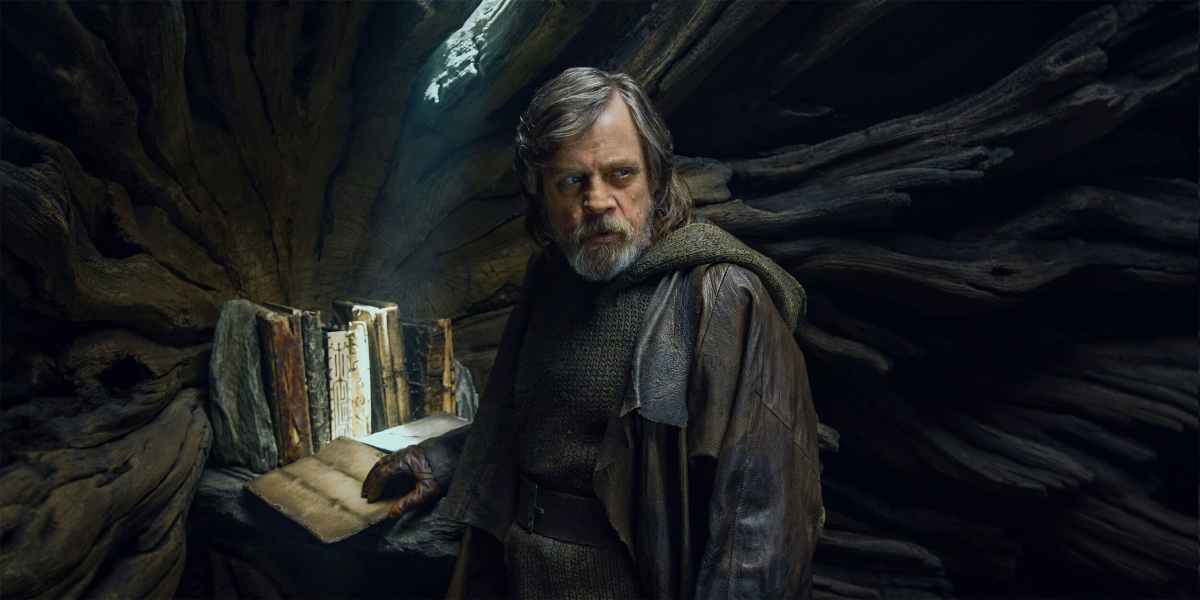
The Force Awakens is perhaps best understood as a product of the late Obama era. Recalling blockbusters like JJ Abrams’ own Star Trek, it is an embrace of pop culture nostalgia in the hope that some glorious past might be reclaimed and reconstructed, perhaps by a more diverse coalition. It is a hopeful throwback, in much the same way that Obama himself was positioned as a successor to the ideals and optimism of John F. Kennedy.
In contrast, The Last Jedi is a defining blockbuster of the Trump era. That progressive optimism has been dented, by the reemergence of enemies long vanquished. There is a palpable sense of exhaustion setting in and a deep anxiety that things may never truly change. Fascism will always return, no matter how hard earlier generations fought to defeat it. More depressingly, it may even find itself embraced by a generation that once defined itself in opposition to that oppression.
The Last Jedi is a movie that is fundamentally about how exhausting it is to have fought fascism and oppression, only to witness it reborn. It is easy to confuse this exhaustion with cynicism, to see it as an embrace of nihilism or a rejection of the past. The Last Jedi returns to this theme repeatedly, even focusing on the generational conflict between Poe (Oscar Isaac) and Holdo (Laura Dern) about how best to deal with the encroaching threat of ascendant fascism.
However, this exhaustion is most obvious with the character of DJ (Benicio del Toro), the codebreaker that Finn (John Boyega) and Rose (Kelly Marie Tran) encounter on the hedonistic planet of Canto Bight. DJ is a character who plays on roguish archetypes, evoking characters like Han Solo (Harrison Ford) or Lando Calrissian (Billy Dee Williams). The crucial difference is that Han and Lando masked hearts of gold beneath their irreverent exteriors. In contrast, DJ is completely nihilistic.
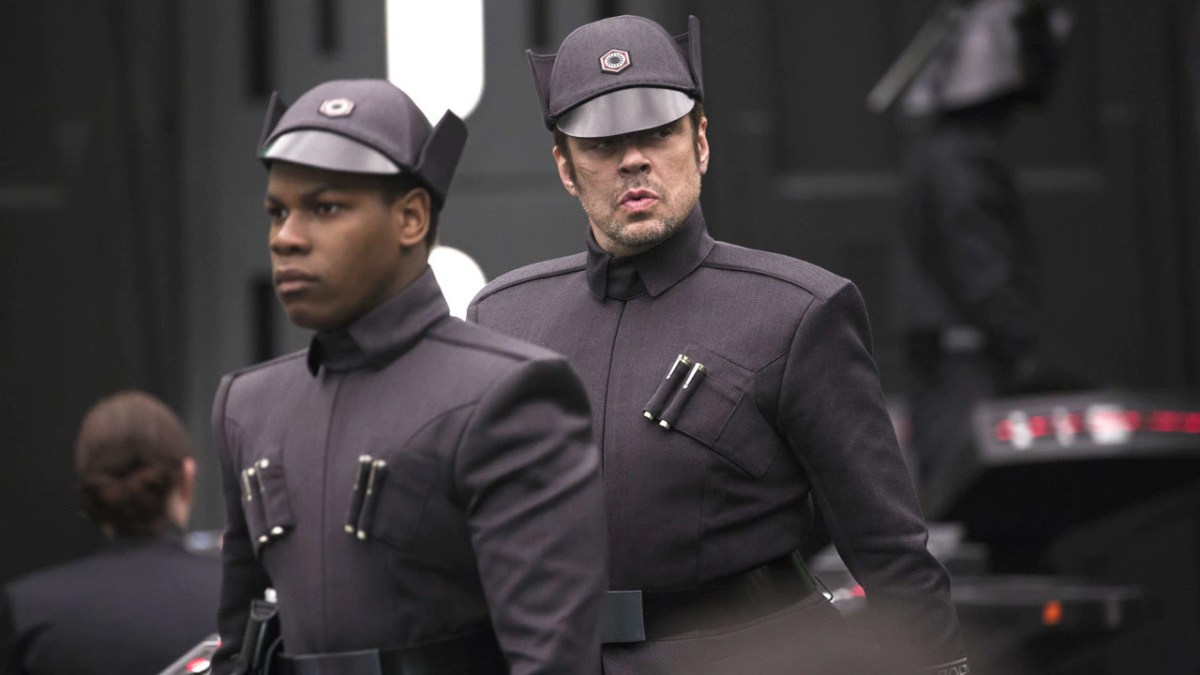
On their way back to the fleet, DJ sits down with Finn to share his cynicism. He reveals that the arms merchants of Canto Bight made their fortune selling weapons to both sides — both the Empire and the Rebels. To DJ, this is proof that it is all one big scam, that everything is morally relative and that nothing means anything. “Finn, let me learn you something big,” DJ tells his younger companion. “It’s all a machine, partner. Live free, don’t join.” Why waste energy caring about anything?
It is easier not to care. Caring about something involves risk. Despite the heroic narratives of the Second World War, the fight against fascism is never complete. The Last Jedi emerged at a moment in time when a younger generation of Americans was grappling with the possibility that decades of progress could be erased almost overnight. Cynicism and exhaustion were understandable responses. As Luke cut himself off from the Force, maybe it was easier to just stop paying attention.
The Last Jedi isn’t an endorsement of this sort of nihilism. It doesn’t embrace the moral relativism advanced by DJ that “both sides” are as bad as one another. Indeed, the movie firmly rejects this. At the climax, DJ betrays Finn and Rose to the First Order. “They blow you up today, you blow them up tomorrow,” he explains. “It’s just business.” Finn offers a simple counterpoint, “You’re wrong.” DJ is so committed to relativism that he can’t defend his own position. He answers, “Maybe.”
Far from being a rejection or a deconstruction of the epic mythology of Star Wars, of the romantic idea that good has a moral obligation to confront evil, The Last Jedi is a crucible. It stress-tests that idea. Finn is introduced attempting to abandon his new allies, to flee in an escape pod. He is then confronted with the hedonism of Canto Bight and the cynicism of DJ. However, Finn ultimately becomes a true believer. He embraces the straightforward idea that good is worth fighting for.
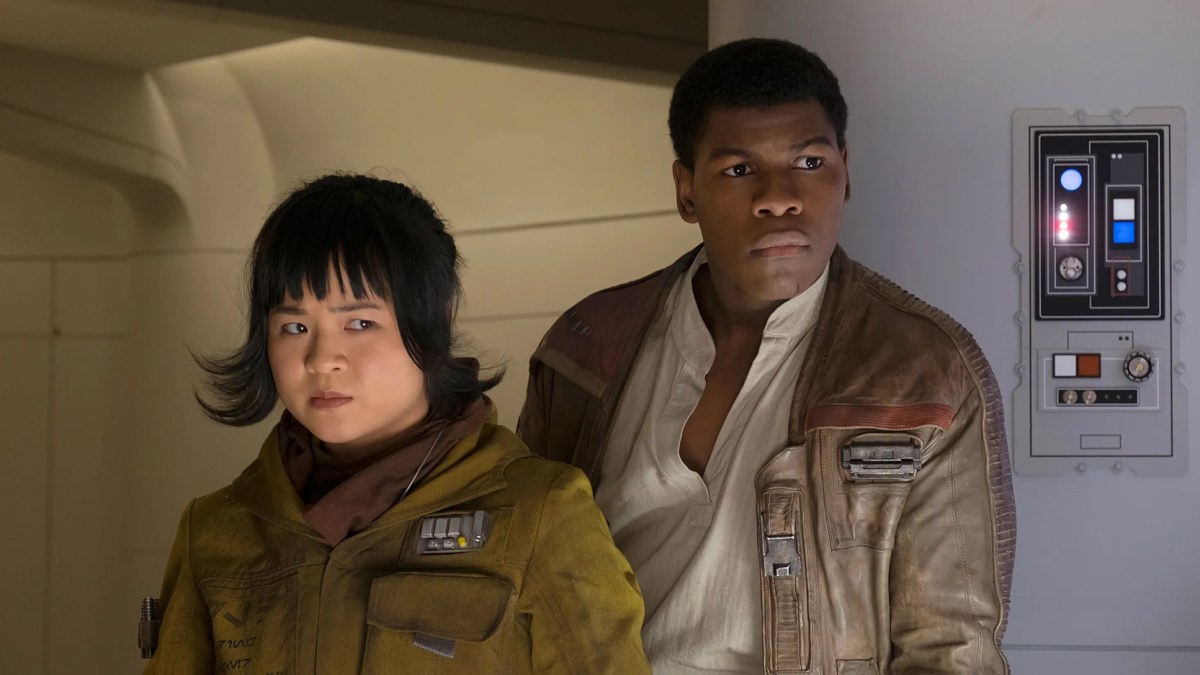
Luke undergoes a similar arc. He has his faith restored and renewed. When he first meets Rey (Daisy Ridley), he is exhausted and frustrated. “You think what?” he goads the young woman who has come to him looking for inspiration. “I’m gonna walk out with a laser sword and face down the whole First Order?” However, the movie builds to Luke doing exactly that. Luke becomes the hero that the galaxy needs him to be, embracing the best version of himself and living up to his legend.
The Last Jedi isn’t about destroying or rejecting the past. Instead, it is about the burden of living up to it. It is about the difficulty of keeping the past alive and continuing to move forward. When Yoda burns down the tree where Luke had been keeping the “sacred Jedi texts,” he doesn’t destroy the texts themselves, because Rey has already taken them with her. The past lives on with and through her. The past isn’t something that exists at an abstract remove from the present. It flows forwards.
In some ways, The Last Jedi takes Star Wars back to its true roots, even beyond Johnson’s allusions to inspirations like The Hidden Fortress. In many ways, The Last Jedi marks a return to the original 1977 blockbuster, which was a story about a farmhand from the middle of nowhere who discovers that he might alter the fate of the galaxy. In the original Star Wars, before Lucas revised his origin in The Empire Strikes Back, Luke was a nobody from the middle of nowhere, but he was a hero.
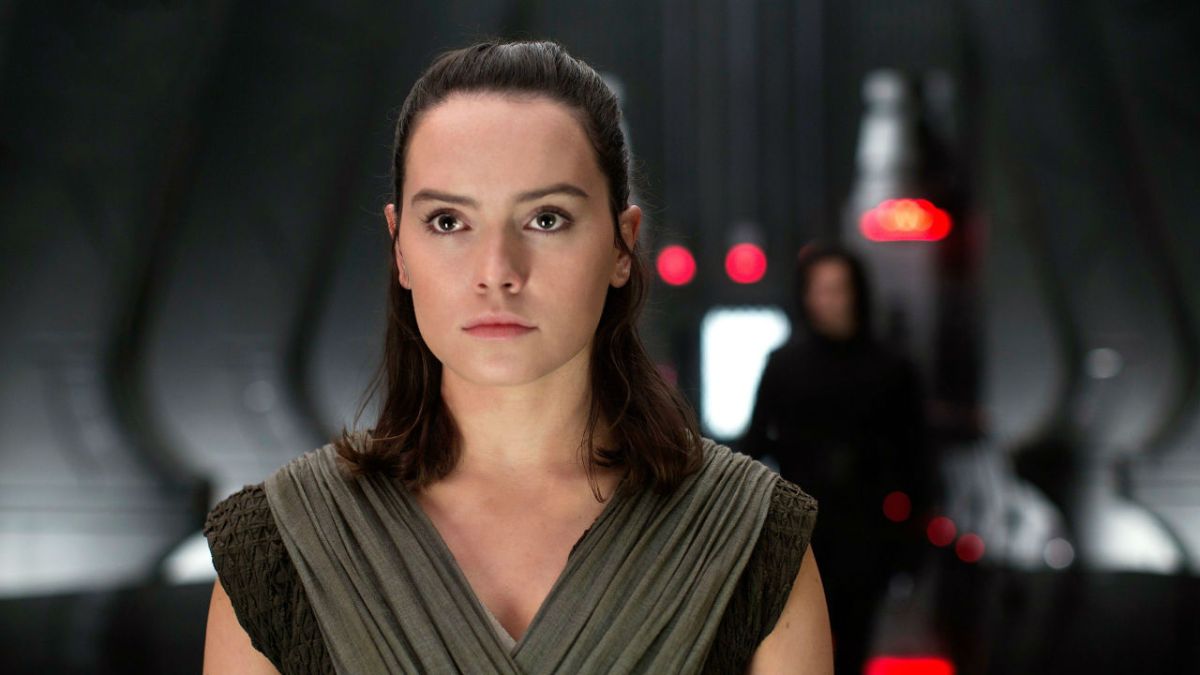
If The Last Jedi subverts anything, it is the way in which The Empire Strikes Back subverted the original Star Wars with the revelation that Luke was Darth Vader’s son, and so part of galactic royalty rather than the son of a dead veteran. That twist is so ingrained in Star Wars lore that it is hard to imagine a time when it was shocking, but it was upsetting and confusing to young Star Wars fans. Even actor James Earl Jones believed that Vader had to be “lying.”
The Last Jedi essentially takes Star Wars back to the original film. It is revealed that Rey is not the child of anybody important. She is not royalty. She is “Rey from Nowhere.” She is just like Luke was in the original Star Wars, a child who stumbled into the middle of an epic struggle between good and evil. It is an idea that The Last Jedi reaffirms in its closing shot, in which a young boy (Temirlan Blaev) on Canto Bight uses the Force to summon a sweeping brush. Heroes can come from anywhere.
The Last Jedi isn’t a deconstruction or subversion of the original Star Wars. Instead, it is a romantic epic about the importance of standing up and fighting the good fight when confronted with overwhelming evil. That seems as true to the spirit of Star Wars as anything.
